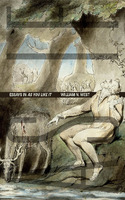As If
Essays in As You Like It
Author(s)
West, William N.
Collection
ScholarLedLanguage
EnglishAbstract
Shakespeare’s As You Like It is a play without a theme. Instead, it repeatedly poses one question in a variety of forms: What if the world were other than it is? As You Like It is a set of experiments in which its characters conditionally change an aspect of their world and see what comes of it: what if I were not a girl but a man? What if I were not a duke, but someone like Robin Hood? What if I were a deer? “What would you say to me now an [that is, “if”] I were your very, very Rosalind?” (4.1.64-65). “Much virtue in ‘if’,” as one of its characters declares near the play’s end; ‘if’ is virtual. It releases force even if the force is not that of what is the case. Change one thing in the world, the play asks, and how else does everything change? In As You Like It, unlike Shakespeare’s other plays, the characters themselves are both experiment and experimenters. They assert something about the world that they know is not the case, and their fictions let them explore what would happen if it were—and not only if it were, but something, not otherwise apparent, about how it is now. What is as you like it? What is it that you, or anyone, really likes or wants? The characters of As You Like It stand in ‘if’ as at a hinge of thought and action, conscious that they desire something, not wholly capable of getting it, not even able to say what it is. Their awareness that the world could be different than it is, is a step towards making it something that they wish it to be, and towards learning what that would be.
Keywords
William Shakespeare; Early Modern studies; As You Like It; cultural studies; experimentation; literary studiesDOI
10.21983/P3.0162.1.00ISBN
9780615988177OCN
1048178790Publisher
punctum booksPublisher website
https://punctumbooks.com/Publication date and place
Brooklyn, NY, 2016Classification
Literary studies: general


 Download
Download